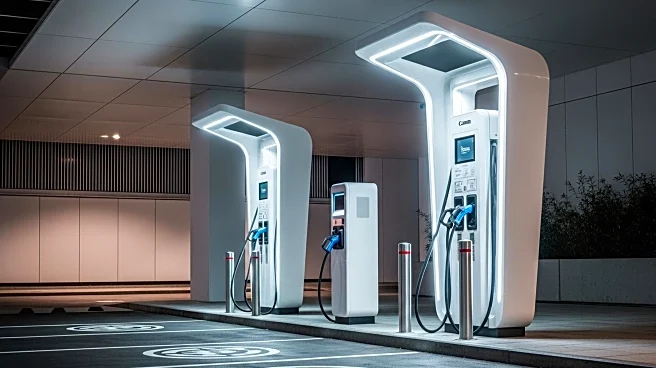What is the story about?
What's Happening?
Major automakers are urging the Trump administration to weaken tailpipe emissions standards that require increased electric vehicle sales. The Alliance for Automotive Innovation, representing companies like General Motors and Toyota, argues that the regulations set under President Biden for 2027-2032 are unachievable due to market demand, infrastructure, and affordability issues. The industry group claims that the pace of EV adoption has been overestimated, and changes in government policy are expected to further depress the market. The U.S. Environmental Protection Agency is considering rescinding a finding that greenhouse gas emissions pose a threat to public health, which underpins federal efforts to reduce emissions.
Why It's Important?
The push to roll back emissions standards has significant implications for the automotive industry and environmental policy. Weakening these regulations could slow the transition to electric vehicles, affecting efforts to reduce carbon emissions and combat climate change. Automakers face uncertainty as policies shift with changing administrations, impacting investment plans and market strategies. The rollback could also affect consumer costs, as the current rules are projected to save drivers money on fuel and maintenance. The debate highlights the tension between industry interests and environmental goals, with potential consequences for public health and climate action.
What's Next?
The EPA's decision on the endangerment finding and emissions standards will be crucial in shaping the future of automotive regulations. Automakers are advocating for alternative standards that are more achievable, which could lead to new regulatory proposals. The industry and environmental groups are likely to continue lobbying efforts, influencing policy decisions. The outcome will affect the pace of EV adoption and the automotive market's direction, with potential impacts on global climate commitments.
Beyond the Headlines
The rollback request reflects broader challenges in balancing economic growth with environmental sustainability. The automotive industry's push for regulatory changes raises ethical questions about corporate responsibility and the long-term impact on climate change. The situation underscores the need for comprehensive policies that support innovation while addressing environmental concerns, ensuring a sustainable future for transportation.

















